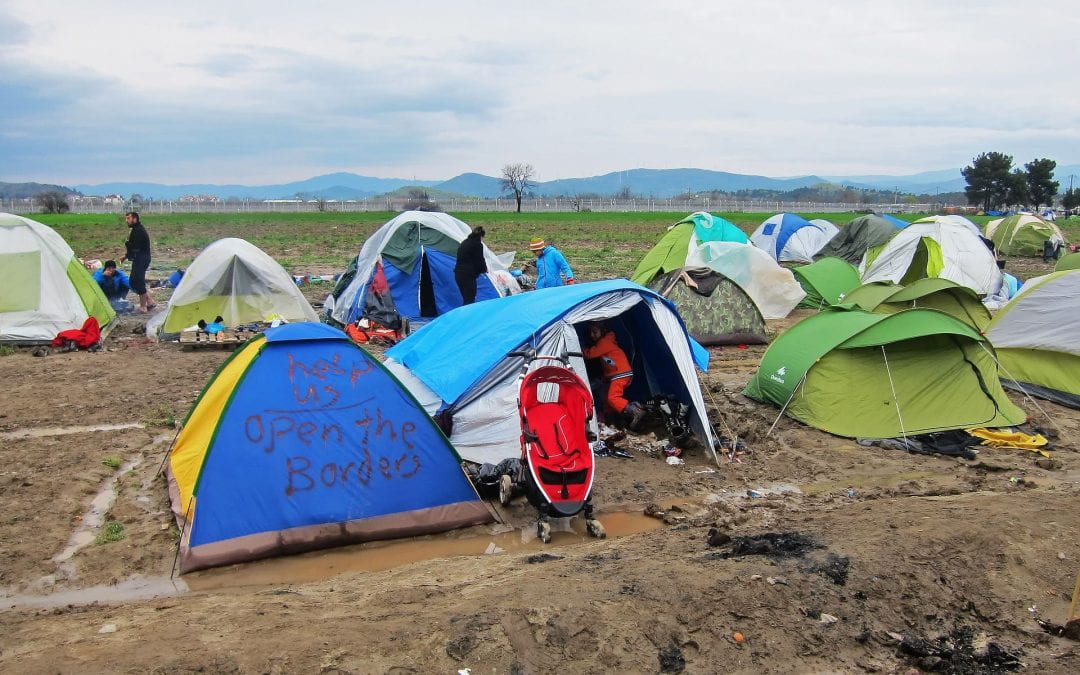By Jay Marlowe –
As the world, and New Zealand, shuts its borders, the millions of refugees globally are forgotten in high density camps. Jay Marlowe argues we can’t only look inward in fighting Covid-19.
The “cautious optimism,” expressed recently by Prime Minister Jacinda Ardern, that New Zealand is successfully flattening the Covid-19 curve has attracted worldwide recognition. We need to remain vigilant on behalf of our own country’s situation, and the longer game associated with Covid-19, but we must also maintain an outward focus to help reduce the impact of this global pandemic.
The world currently has the greatest number of forcibly displaced people due to conflict and persecution in its recorded history; more than 70 million. Last year, an average of 26 people were newly displaced every minute and more than 85 percent of those are hosted in neighbouring countries, which are generally not well-equipped to respond to the complexities of a pandemic crisis.
The International Organisation for Migration and the United Nations High Commissioner for Refugees has currently suspended operations to support refugee resettlement, a crucial lifeline for people living in highly precarious situations. New Zealand has halted its intake for May, and it remains unclear when its resettlement programme, scheduled to rise to an annual quota of 1500 people in July, will resume.
The camps and other sites of urban displacement illustrate in stark relief that opportunities for social distancing are largely available only to the privileged. The world’s largest refugee camp in Bangladesh, for example, hosts more than 800,000 Rohingya refugees and the International Federation of the Red Cross and Red Crescent estimate there are 60,000 people living together within a square kilometre, roughly one and a half times that of Manila, the world’s most densely populated city. It is more than twice the density of New York City where the world’s epicentre is currently located.
Overcrowded facilities and settlements along the Mexican border, Turkey, Indonesia, Manus Island, and what seems to be countless other places where people’s asylum applications are left languishing and ignored, highlights how infection can so rapidly spread.
In these places, and the urban centres in which so many forced migrants live, placing food on the table is a hand-to-mouth commitment that makes social isolation nearly impossible.
When we put these numbers alongside climate displacement, which just six weeks ago was one of the world’s most trending topics, it becomes clear that the relationships between conflict, climate and now, contagion, are increasingly interconnected.
The myriad challenges of Covid-19 raise the spectre of very tough decisions about who receives treatment and support in the context of limited resources. For instance, do we focus resources on young people who are our future, the elderly who are most vulnerable or our current workforce who support the economy, and for whom being unemployed might rapidly turn into its own health crisis? These ethical questions can easily be extended to what priority we give to other groups, defined by things like citizenship, migration status, national borders, various forms of vulnerability and so on.
While the virus is clearly associated with human mobility, it is not a migration problem. Despite this, migration and migrants are increasingly being demonised as an issue in the Covid-19 crisis. In fact to the contrary, migrants are making significant contributions to the crises we are facing. In the UK and other countries (including our own), for example, people who trained as doctors and medical professionals in their home countries are rallying to help at the front lines. Within New Zealand, it’s becoming apparent that migrants have been central to keeping core services like supermarkets and health support services going all along.
The New Zealand response to Covid-19 illustrates that vulnerability is best understood as a layered concept rather than a case of labelling a particular group as vulnerable. While it is true that some groups are more vulnerable than others, it is not accurate or useful to label any group as completely vulnerable, including refugees.
In the end, it comes down to what we do as a society, in organisations, as individuals and within the various areas of government that can either add or remove layers of vulnerability to any group of people.
I believe both an internal and outwardly-focused perspective is key to resolving this global crisis, thereby acknowledging that we can all play a role in reducing these vulnerabilities.
While relatively small gestures like checking in on neighbours and our networks in safe ways, ensuring Covid-19 information is reliable before sharing it, supporting organisations on the frontline or simply being kind seem insignificant in isolation, it is the cumulative effect of all of these actions that will help address social distance and recovery pathways for all of us.
*Originally published in newsroom. Republished with permission.
Associate Professor Jay Marlowe is a co-director of the newly-established Centre for Asia Pacific Refugee Studies at the University of Auckland’s faculty of Education and Social Work, and an associate of the Public Policy Institute.

